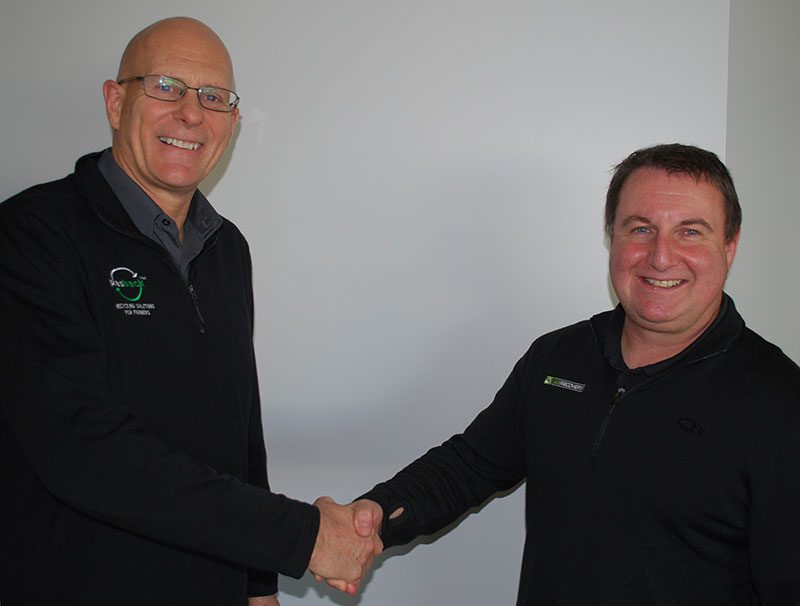The two main farm plastic collection programmes in New Zealand’s primary sector – Agrecovery and Plasback – have agreed to work together to improve the services they provide farmers and growers.
Agrecovery chief executive Tony Wilson and Plasback commercial manager Neal Shaw say the two organisations have signed a memorandum of understanding.
It will see them join forces to provide the most efficient and cost-effective means to collect and recycle used farm plastic.
“Our focus is on finding the best ways to meet the needs of primary producers,” Tony says.
“Agrecovery and Plasback have different and complementary strengths and areas of expertise. By working together we will target our future investments to take farm plastic recycling to the next level.”
Both companies have been collecting and facilitating the recycling of farm plastic in New Zealand for more than 15 years. Both are accredited voluntary product stewardship schemes under the Waste Minimisation Act.
“Plasback has developed an on-farm collection service for silage wrap and pit covers, while Agrecovery has established a nation-wide drop-off service to recycle agrichemical containers and large drums,” Neal says.
“Now our aim is to develop a service that can collect all agricultural and horticultural plastics for recycling.
“Tony and I both get calls every day from farmers and growers who want to do the right thing with their used plastic. Going forward, we will work together to take that problem off their hands,” Neal says.
The two organisations have made the decision to cooperate at a time when the government has announced its intention to establish a mandatory, industry-wide product stewardship scheme for farm plastics. The anticipated go-live date for the regulated scheme is July 2024.
The proposed product stewardship scheme will include an up-front stewardship fee on designated farm plastic products, including packaging. A wider scheme for consumer goods packaging is also being designed.
Agrecovery and Plasback are working with the Ministry to come up with a scheme that costs industry as little as possible but is still comprehensive enough to collect, process and ship all used farm plastic to domestic and overseas recyclers.
Currently farmers and growers must deal with some plastics that they can neither drop off nor have collected. Neal says this is because the businesses that supply those products are not contributing to the cost of recycling.
“Some companies are working with Plasback and Agrecovery to cover the costs of disposing of their waste responsibly, but others are not. The door is open to everyone in the industry to work with us to improve the service we provide primary producers,” Neal says.
“Ultimately it is New Zealand agriculture as a whole that will benefit from responsible product stewardship. If Kiwi farmers and growers are to attract top dollar for their commodities in the global economy, they will have to prove they farm sustainably.”
Tony and Neal say farmers and growers are facing significant price increases on agrichemicals and crop packaging products. They believe that by working together they can keep any additional costs in recycling plastic from the primary sector to a minimum.
“We want to set up a simple entry point for everyone to get on board, whether they are consumers, other recyclers or suppliers who sell products in plastic packaging,” Tony says.

